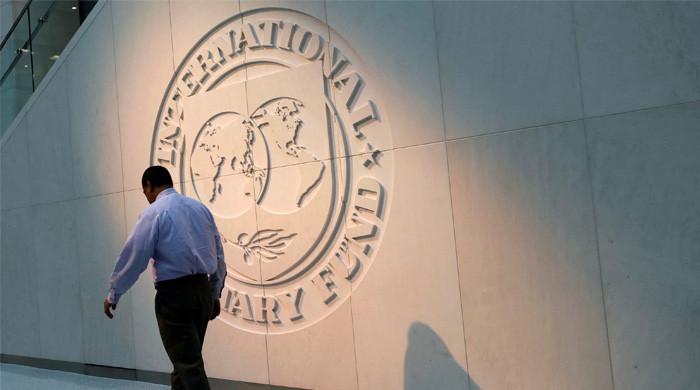Will the Single National Curriculum turn mirrors into windows?
Making arbitrary changes to children's curriculum for the sake of someone else's war was a bad choice, writes Babar Ali Raza
August 24, 2021

In the 12th century BC, Queen Helen of Sparta was abducted by Prince Paris of Troy. So, a battle, known as the Trojan War, was fought between Greece and Troy to bring back the queen.
In this war, the Greeks laid siege to Troy for 10 years but could not break the strong defense of the opposing army. When all attempts to enter the city failed, the Greek General Odysseus, with the help of a skilled carpenter, made a wooden horse about twenty-five-feet high and 10 feet wide, and hid in it, along with a few companions.
The Greeks put the horse outside the city of Troy and left the field on purpose. Troy's soldiers, seeing the Greeks going back, took the horse as booty and carried it inside the city.
At midnight, Odysseus and his companions slipped out of the horse's belly and opened the city gates. In the darkness of the night, the Greek army had also returned, which entered the city at the opening of the gate and then they ruthlessly plundered Troy.
The wooden horse, known today as the Trojan Horse, was the main reason for winning the war. As it was being taken into the city, Troy's army had no idea that the horse, which had been abandoned for no reason, could be a ploy by the enemy.
They apparently committed a small act of negligence which resulted in irreparable damage.
A similar mistake was made on the departure of Titanic when David Blair, a crew member who was no longer accompanying the ship, accidentally forgot to hand over the keys of the storage locker of the ship to the captain. The locker contained binoculars that could be used to report dangers around by standing at Crow's nest, a higher place on ship.
Due to the unavailability of binoculars, the captain of Titanic could not be notified in time of the presence of any dangers in the sea, and on April 15, 1912, the world's largest ship collided with an iceberg and sank to the bottom of the sea.
There are numerous examples in history when seemingly small errors decided the fate and future of nations. One such mistake was made by Pakistan 42 years ago, for which we are still paying.
The Cold War between the United States and the USSR was at its height in the 1980s. The USSR had reached Afghanistan and wanted to increase its influence in the region. In those circumstances, then president Zia-ul-Haq, with the help of the CIA, promoted religious teachings in Pakistan and made changes in the curriculum to build public opinion against the USSR.
At that time, the inclusion of a few lessons in the syllabus seemed trivial. But this divided the country into many classes in terms of education.
Minorities did not want to study the compulsory subject of Islamiat, so they either opted for Ethics or went on to study through a different education system. The new students of the 80s were entirely different in behaviour from the ones who got education in the 1970s.
In order to achieve the targets for which the new syllabus was devised, we portrayed Afghanistan fighters as heroes and a source of inspiration in the media. As a result, war culture became commonplace and carrying a Kalashnikov in one's hands became a fashion. This altered our identity from a moderate forward-looking state to a nation proud of its extremists.
When Russia broke up in 1989-90, the United States withdrew from the region leaving Pakistan in the lurch.
It was then that we had swarmed our country with radicals and religious zealots. Jumping into the Cold War proved to be fatal for our society which neither could win us the US as a reliable friend nor could it improve our economic condition.
Our next thirty precious years were spent only in maintaining the unity of the country, extinguishing the fire of sectarianism and constantly fighting fanaticism.
The revival of the economy, meanwhile, remained ignored. Thus India, Bangladesh and other Asian countries got ahead of us in terms of development.
Making arbitrary changes to children's curriculum for the sake of someone else's war was a bad choice. When all of this was happening, some private educational institutions developed their own syllabi due to differences with the then existing curriculum.
Similarly, some religious elements, in order to achieve their goals, deviated from the government syllabus and introduced their own books. Thus, having different curricula for different classes became a cause of division in the society which still persists.
Realizing the importance of education for society, the government has decided to introduce a uniform curriculum for students across the country (except Sindh, as the provincial government could not agree on it).
Having the same educational opportunities will alleviate the sense of deprivation in many areas. It will also be a sigh of relief for the poor who cannot afford costly private education. But with regard to the syllabus, care must be taken to ensure that it is factually correct, promotes scientific research and represents the whole of Pakistan.
History tells us that only those nations prosper who remain united in challenging times. In order to achieve unity, the ruling party’s Single National Curriculum (SNC) can help besides other factors.
Now it is the government's responsibility to ensure that the devised SNC is inclusive and does not violate any articles of the constitution.
This nation has faced many difficulties in the hope to see better days. We were wounded by the effects of extremism and bigotry but we did not stop walking on the road that leads to harmony and peace. We failed many times but were never disappointed in this struggle. Let’s expect that the new unified curriculum will turn mirrors into windows and will prove to be the best investment for our future.
The writer is an M. Phil Scholar and currently working as Deputy Director at Federal Ministry of Information and Broadcasting
NOTE: Greece did not exist as a state in the 12th century BC. For the convenience of the reader, Sparta and the surrounding areas are written as Greece and their people as Greeks. And Odysseus was also the king of Ithaca.











